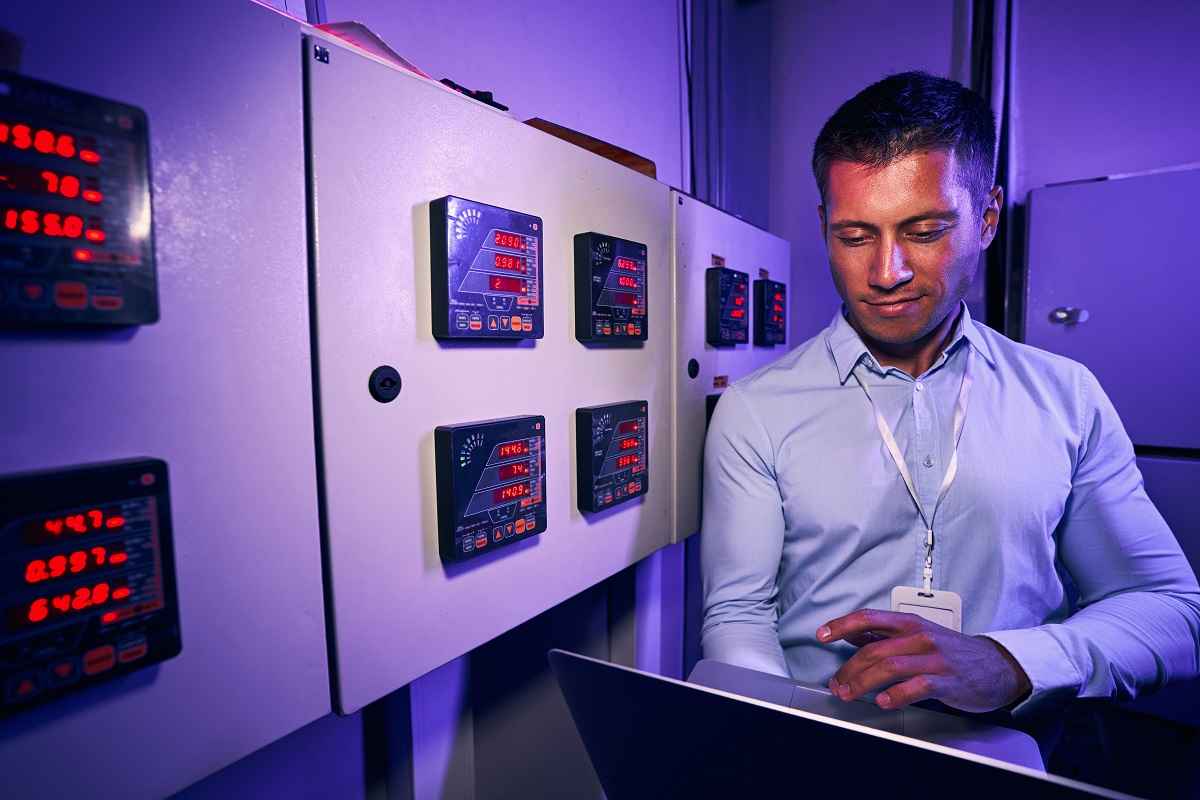What Is Energy Auditing?
Energy auditing is the process of assessing a building’s energy consumption to identify opportunities for reducing energy use and improving energy efficiency. Energy audits involve a comprehensive examination of a building’s energy systems, including heating, ventilation, air conditioning (HVAC), lighting, insulation, and appliances. The goal of an energy audit is to pinpoint areas where energy is being wasted and recommend measures to improve energy efficiency, ultimately reducing energy costs and environmental impact.
An energy audit typically begins with a thorough analysis of a building’s energy consumption history, examining utility bills and energy usage patterns. This analysis helps auditors understand how energy is used and identify potential trends or anomalies. Auditors also conduct on-site inspections to assess the condition of energy systems, check for air leaks, and evaluate the effectiveness of insulation.
Energy auditing involves the use of specialized tools and techniques. Infrared thermography allows auditors to detect heat loss and identify areas with insufficient insulation. Blower door tests measure the building’s airtightness, providing insights into potential air leaks. Light meters help evaluate lighting efficiency, and other instruments measure the performance of HVAC systems and appliances.
The results of an energy audit are typically presented in an energy audit report, which outlines the auditor’s findings and provides recommendations for energy-saving measures. These measures can range from simple changes, like replacing light bulbs with energy-efficient LEDs, to more complex upgrades, like installing a new HVAC system or improving insulation.
Overall, energy auditing plays a crucial role in promoting energy efficiency and reducing energy waste. It requires a combination of technical expertise, analytical skills, and the capacity to recommend practical energy-saving solutions.
Why Learn About Energy Auditing Nowadays?
Learning about energy auditing is more relevant than ever in today’s context of climate change and the global push toward sustainability. Energy audits offer a practical approach to reducing energy consumption, lowering utility costs, and minimizing environmental impact. Here are a few reasons why learning about energy auditing is valuable:
First, energy auditing is essential for energy efficiency and conservation. By identifying areas where energy is being wasted, energy audits provide actionable recommendations to improve energy efficiency. Learning about energy auditing gives you the skills to help individuals and organizations reduce their energy consumption and carbon footprint.
Second, energy auditing plays a key role in cost savings. Energy audits can lead to significant reductions in energy bills by recommending energy-saving measures. This focus on cost savings is crucial for businesses and homeowners looking to lower operating costs and increase energy efficiency.
Third, learning about energy auditing offers a wide range of career opportunities. Professionals with skills in energy auditing can work in various industries, including energy consulting, sustainability, construction, and facility management. The ability to conduct energy audits and recommend energy-saving measures is highly valued, providing career growth and development opportunities.
Additionally, energy auditing supports sustainability and environmental goals. By reducing energy consumption, energy audits contribute to a more sustainable built environment and help combat climate change. This focus on sustainability aligns with global efforts to reduce carbon emissions and promote energy efficiency.
Work in Energy Auditing
Working in energy auditing involves a variety of tasks, from conducting energy assessments to analyzing energy data and recommending energy-saving measures. Energy auditors collaborate with various stakeholders, including building owners, facility managers, and construction professionals, to identify opportunities for energy efficiency improvements and implement energy-saving solutions.
A typical day for an energy auditor might include analyzing utility bills, conducting on-site energy assessments, and preparing energy audit reports. Energy auditors use tools like infrared thermography, blower door tests, and light meters to assess the condition of energy systems and identify areas of energy waste. They also evaluate the performance of HVAC systems, appliances, and insulation to determine their impact on energy consumption.
Energy auditors often specialize in specific areas, such as commercial energy auditing, residential energy auditing, or industrial energy auditing. Each specialization requires unique skills and knowledge. For example, commercial energy auditors focus on energy assessments for commercial buildings, while industrial energy auditors assess energy use in industrial facilities and processes.
The work environment for energy auditing can vary, with professionals spending time in offices, on-site at buildings, and in the field conducting energy assessments. This variety adds to the appeal of the career, offering a mix of analytical work and hands-on energy evaluation.
Career progression in energy auditing can lead to roles like senior energy auditor, energy efficiency consultant, or energy management specialist. With experience, energy auditors may move into leadership positions, overseeing energy auditing departments and driving energy efficiency strategies. Some energy auditors also choose to work in consulting, providing energy auditing expertise to various organizations.
Why Is Energy Auditing Crucial for Innovation?
Energy auditing is crucial for innovation because it provides the foundation for improving energy efficiency and reducing energy waste. Energy audits drive innovation by identifying areas where energy is being wasted and recommending solutions that improve energy efficiency. Here are some reasons why energy auditing is key to innovation:
First, energy auditing fosters energy efficiency and conservation. By identifying energy-saving opportunities, energy audits encourage the adoption of energy-efficient technologies and practices. This focus on energy efficiency drives innovation by promoting the development of more sustainable building systems and practices.
Second, energy auditing is essential for cost savings and financial performance. Energy audits can lead to significant cost savings by reducing energy bills and improving energy efficiency. This emphasis on cost savings drives innovation by encouraging businesses and homeowners to invest in energy-saving measures.
Third, energy auditing supports sustainability and environmental goals. By reducing energy consumption, energy audits contribute to lower carbon emissions and help combat climate change. This environmental focus fosters innovation by promoting sustainable practices and encouraging the transition to a low-carbon economy.


